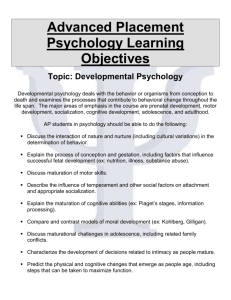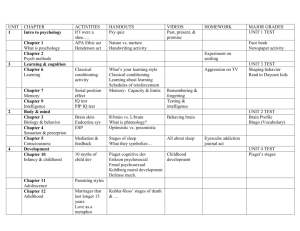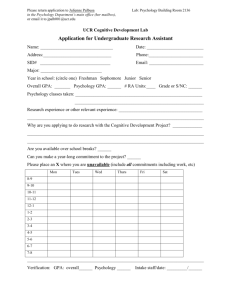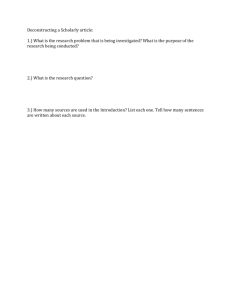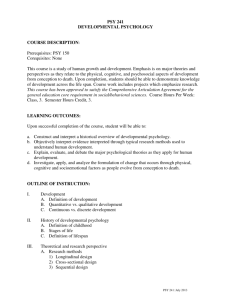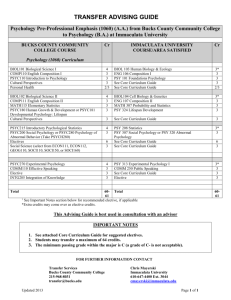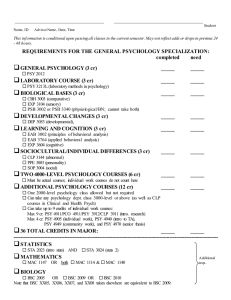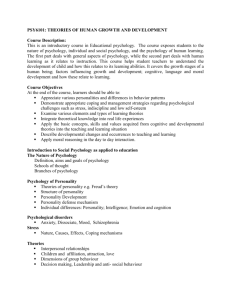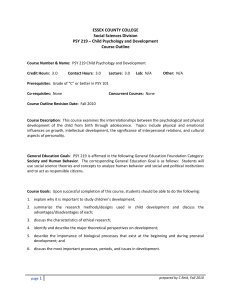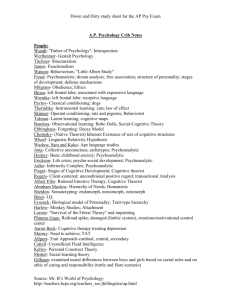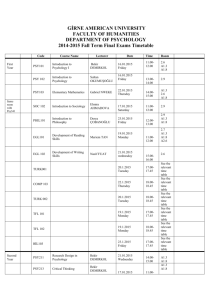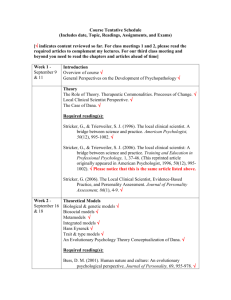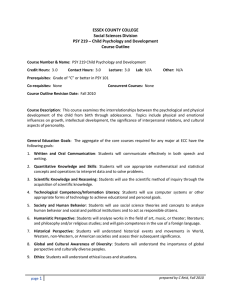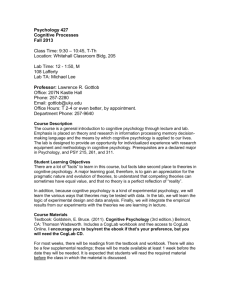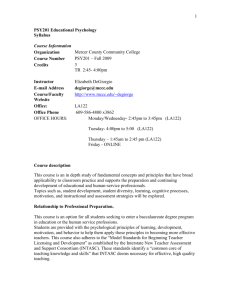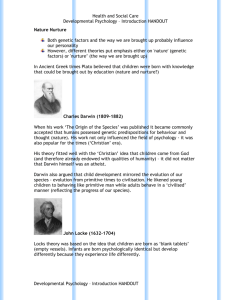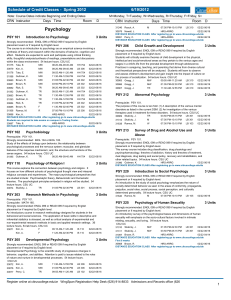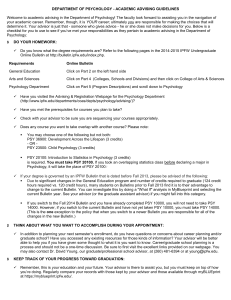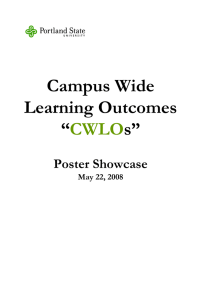Course Outline - Farmingdale State College
advertisement
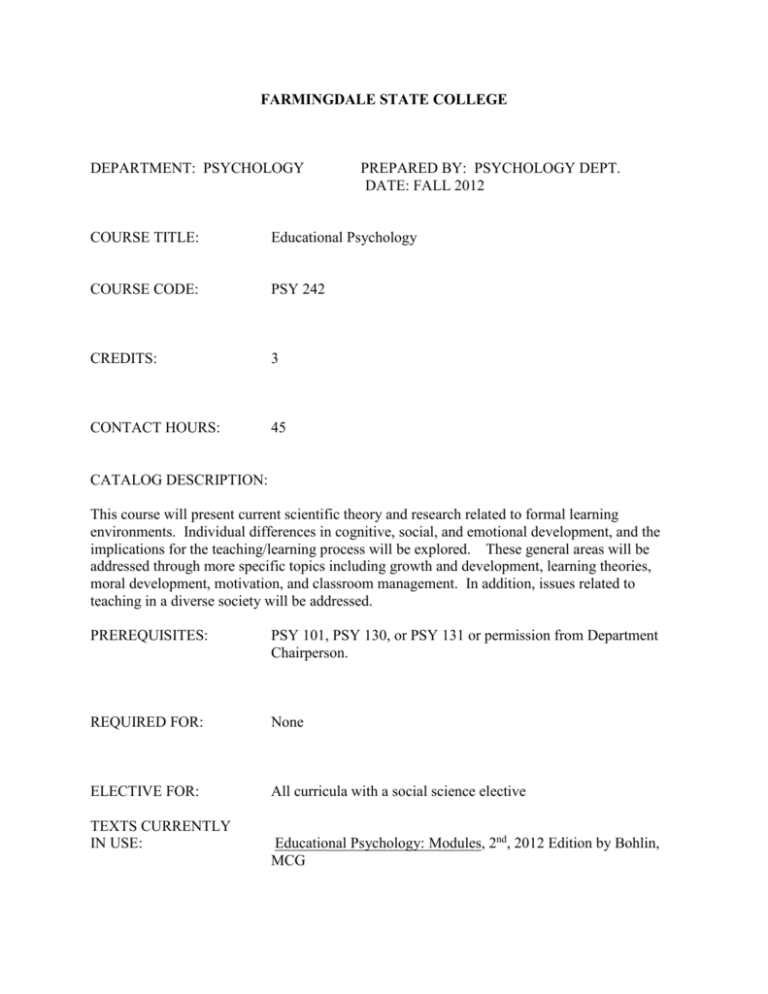
FARMINGDALE STATE COLLEGE DEPARTMENT: PSYCHOLOGY PREPARED BY: PSYCHOLOGY DEPT. DATE: FALL 2012 COURSE TITLE: Educational Psychology COURSE CODE: PSY 242 CREDITS: 3 CONTACT HOURS: 45 CATALOG DESCRIPTION: This course will present current scientific theory and research related to formal learning environments. Individual differences in cognitive, social, and emotional development, and the implications for the teaching/learning process will be explored. These general areas will be addressed through more specific topics including growth and development, learning theories, moral development, motivation, and classroom management. In addition, issues related to teaching in a diverse society will be addressed. PREREQUISITES: PSY 101, PSY 130, or PSY 131 or permission from Department Chairperson. REQUIRED FOR: None ELECTIVE FOR: All curricula with a social science elective TEXTS CURRENTLY IN USE: Educational Psychology: Modules, 2nd, 2012 Edition by Bohlin, MCG Course Objectives After successfully completing this course students should be able to: 1. Understand the ways that research leads to knowledge that can be applied to classroom practice. 2. Demonstrate an understanding of the issues inherent in teaching in a culturally diverse classroom. 3. Demonstrate familiarity with the different theories of cognitive, social, emotional, and moral development and recognize their relevance for teachers. 4. Identify different types of diversity and understand the implications involved. 5. Identify the role of motivation in the learning process. 6. Apply principles of educational psychology to classroom activities. Outline Topic I Educational Psychology: A foundation for teaching A. What makes a good teacher B. The role of research in educational psychology C. Research methods Topic II Theories of Development A. Piaget - cognitive development B. Vygotsky - cognitive development C. Erikson - psychosocial development D. Piaget and Kohlberg - moral development E. Translating theory into practice Topic III Development During Childhood and Adolescence A. The preschool years B. Middle Childhood C. Adolescence Topic IV Student Diversity A. Socioeconomic status B. Ethnicity and race C. Bilingualism and Language Differences D. Gender E. Intelligence F. Learning styles Topic V Theories of Learning A. Classical conditioning B. Operant conditioning C. Social learning theory D. Information processing E. Memory strategies F. Metacognition Topic VI Motivating Students to Learn I. II. III. IV. V. Defining motivation Theories of motivation Enhancing motivation Intrinsic and Extrinsic motivation How teachers motivate students Topic VII Effective Learning Environments 1. The impact of time on learning 2. Managing routine misbehavior 3. Managing more serious behavior problems 4. Preventing serious behavior problems The following instructional methodologies will be used: Whole Class and Small group discussion, active learning tasks, lecture, and instructional technologies.
